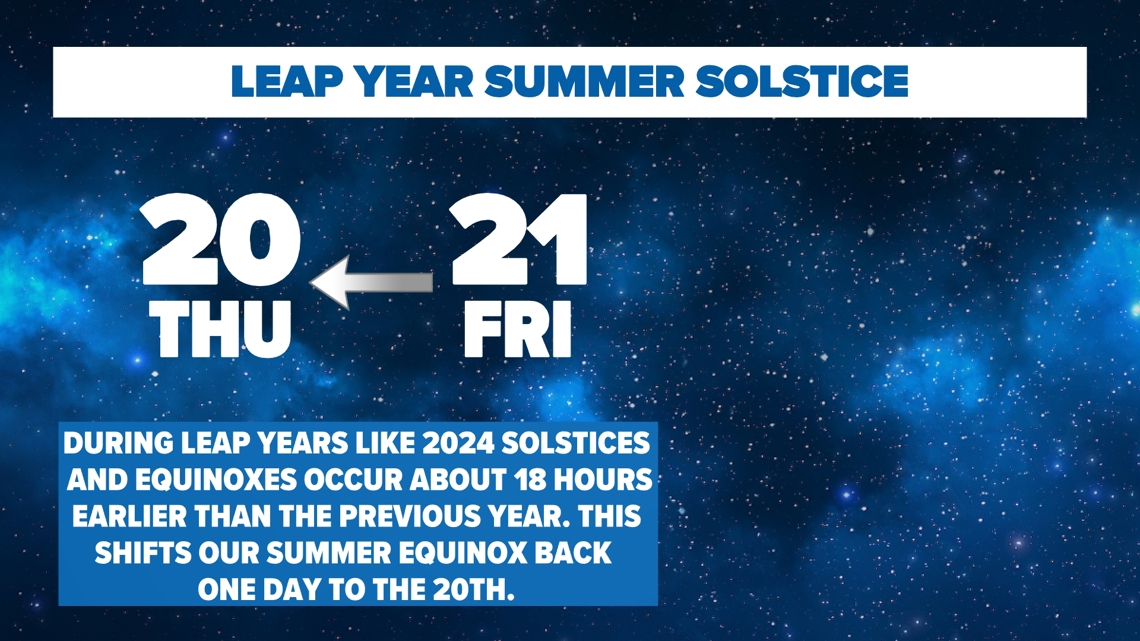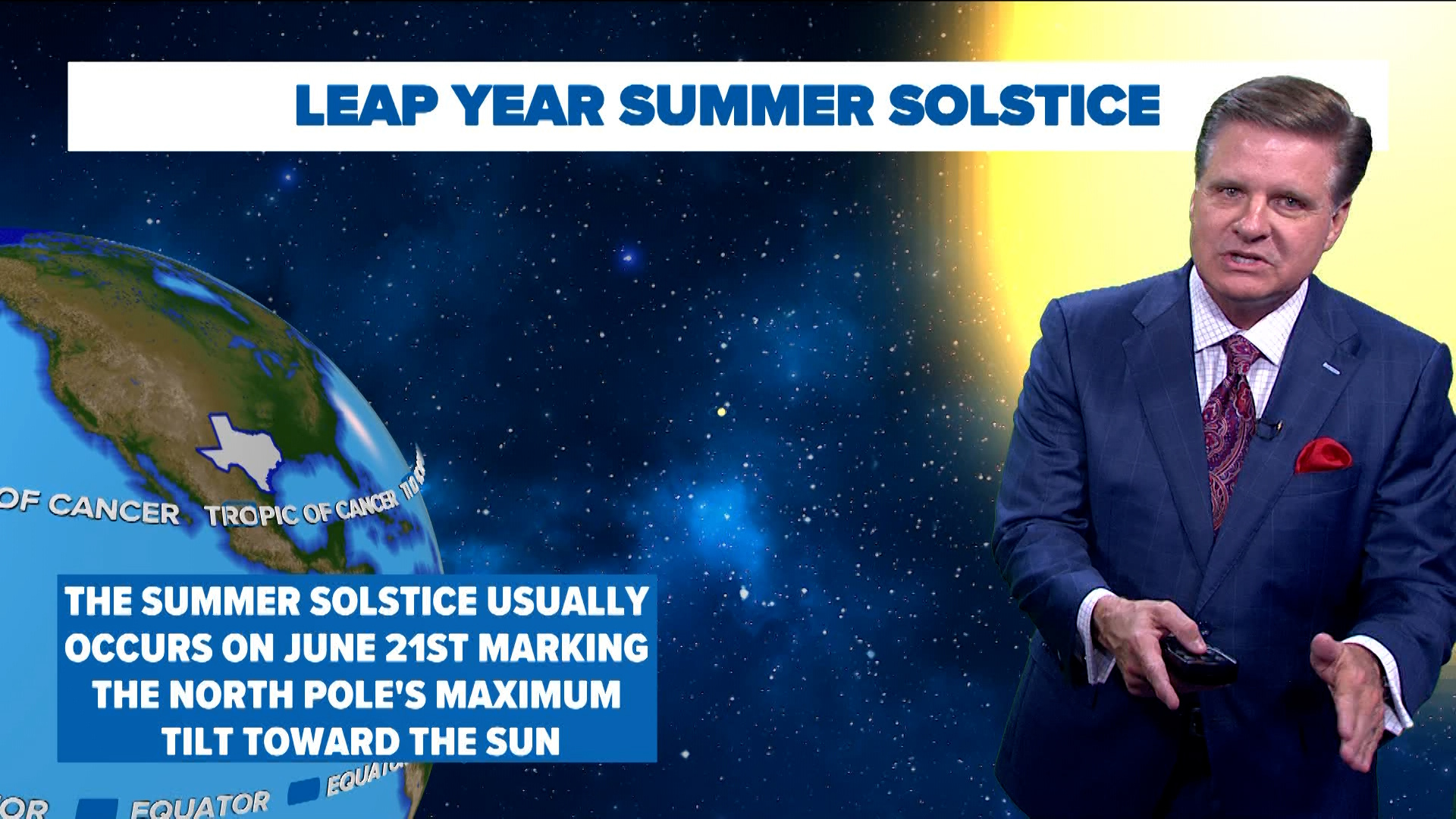DALLAS — Be sure to download the WFAA app to track the latest forecast and get alerts from our team.
Summer is just an ever-present thing here in North Texas. Sometimes, it takes a brief pause... while many times it is scorching our earth. (Remember when it hit 94° on February 26th??)
Summer is making an early entrance
Forget the February heat, summer OFFICIALLY began at 3:51 p.m. Thursday because of an unusually early summer solstice. This is the earliest solstice in 228 years, dating back to 1796 when George Washington was president.

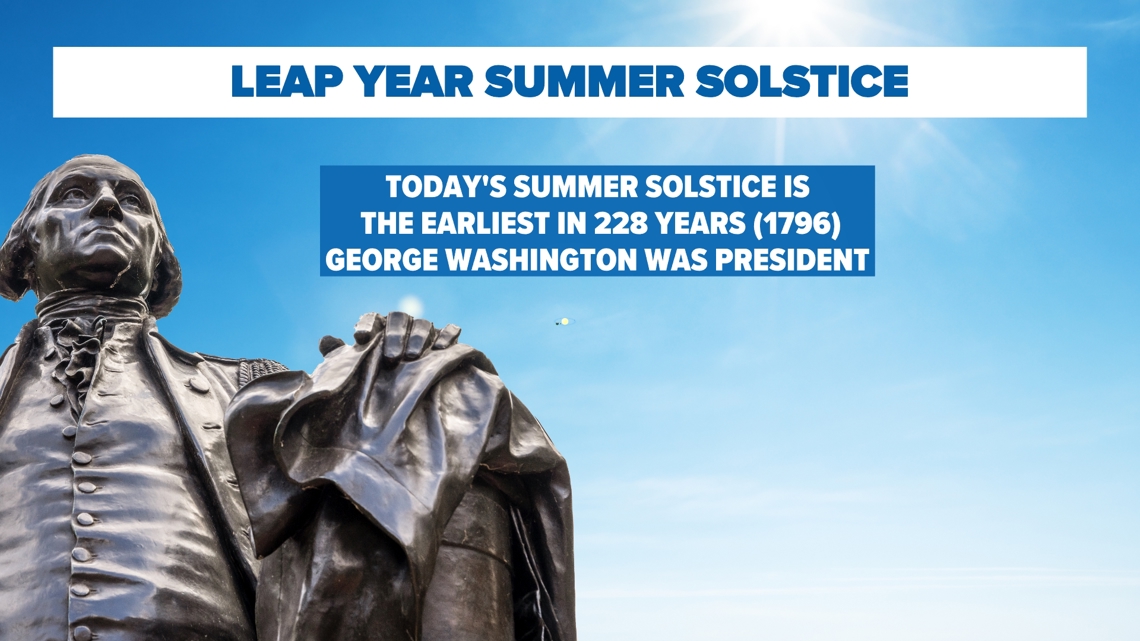
Most times, the summer solstice happens on June 21, marking the point when the Earth's North Pole is tilted closest to the sun.
This causes the sun to appear directly over the Tropic of Cancer, situated 23.5 degrees north of the equator, resulting in the longest day and shortest night of the year in the Northern Hemisphere.


In North Texas, the sun will trace its longest and highest path through the sky on this day, granting us the most daylight hours of the year.
For example, DFW will experience about 14 hours and 18 minutes of daylight, with the sun rising around 6:20 a.m. and setting at approximately 8:38 p.m.

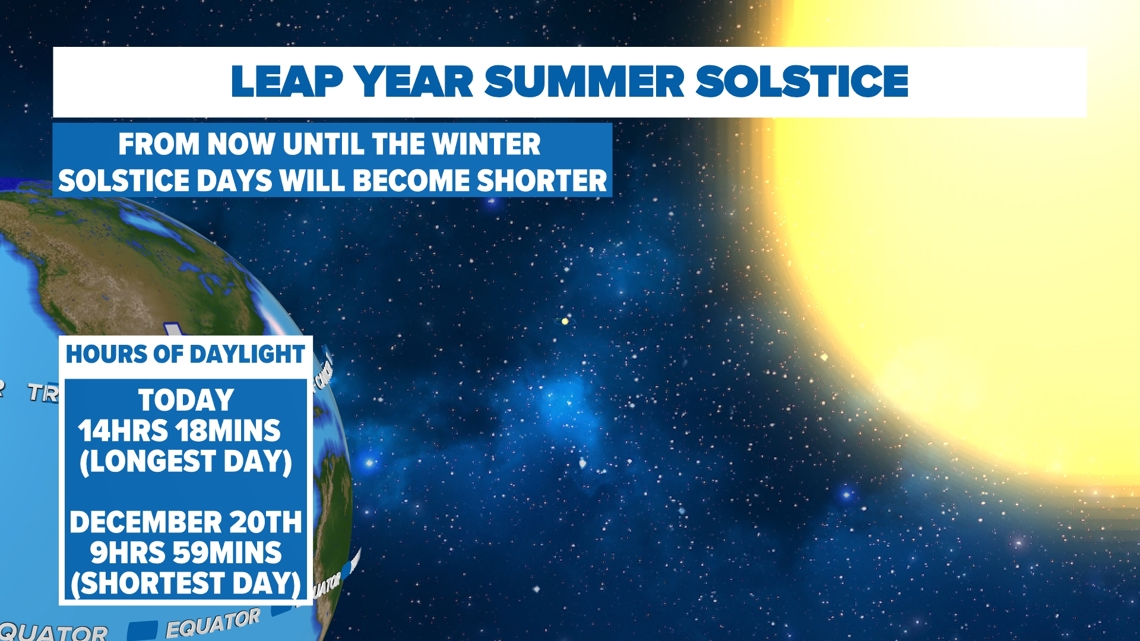
Why is the solstice happening earlier this year?
The primary culprit is the imperfection of human calendars. While a standard year consists of 365 days, Earth's orbit around the sun actually takes about 365 days, 5 hours, and 49 minutes—totaling approximately 365.24219 days.
To compensate for this discrepancy, the Gregorian calendar, adopted in the late 16th century, includes an extra day (February 29) every four years, creating leap years of 366 days.

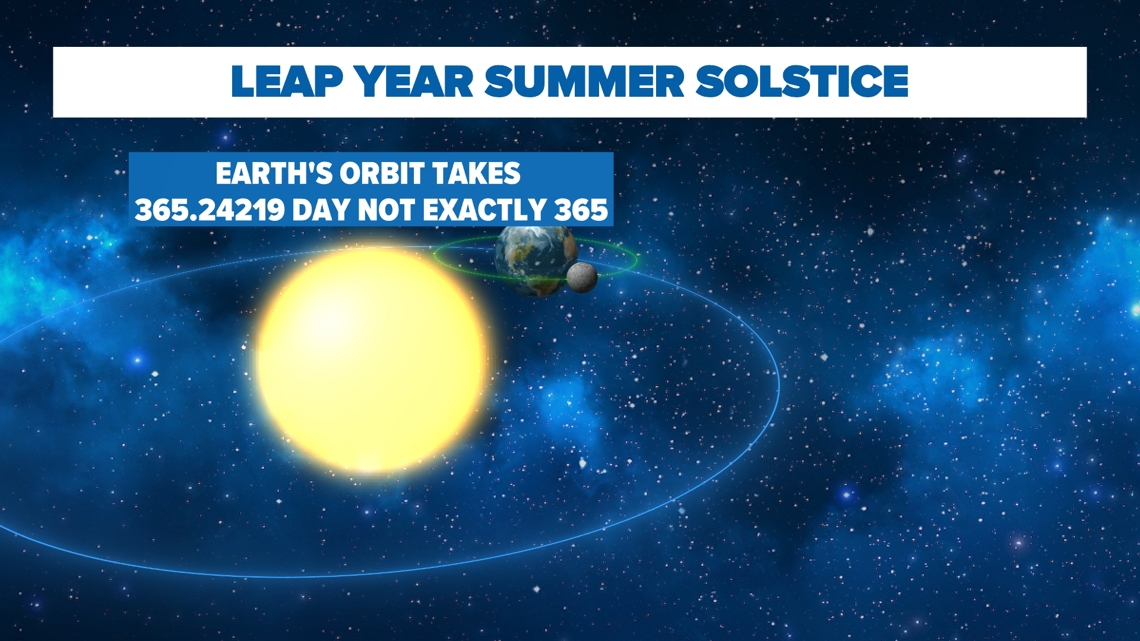
During leap years like 2024, solstices and equinoxes occur about 18 hours and 11 minutes earlier than the previous year. In subsequent non-leap years, these seasonal markers shift later by roughly 0.24219 days (or about 5 hours and 49 minutes) each year.

